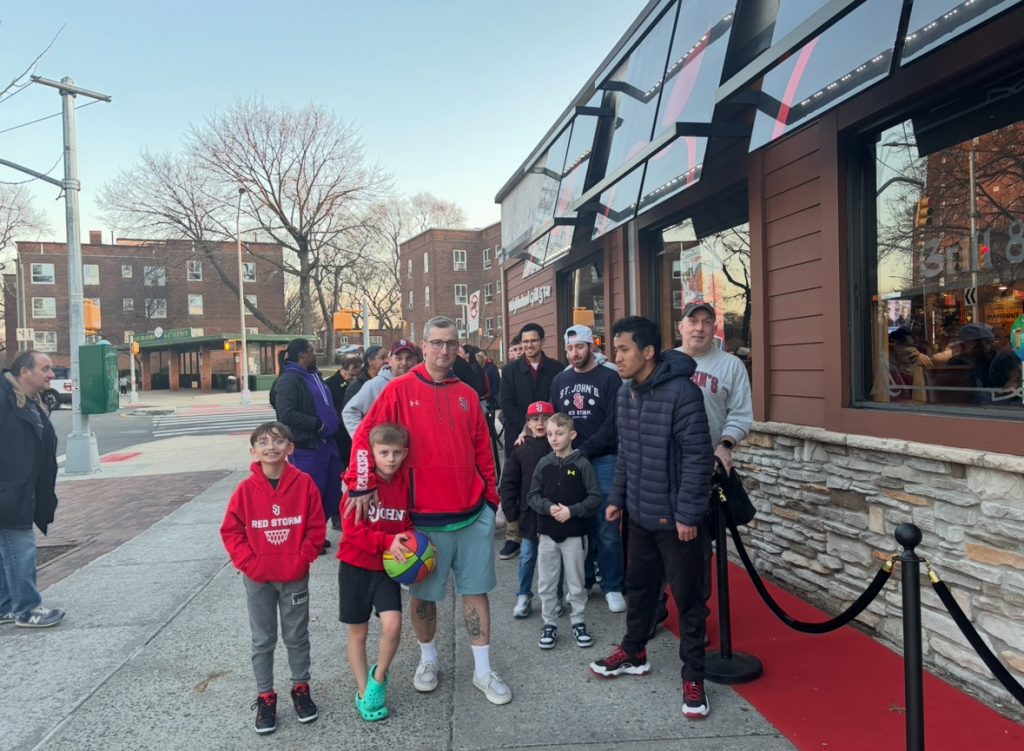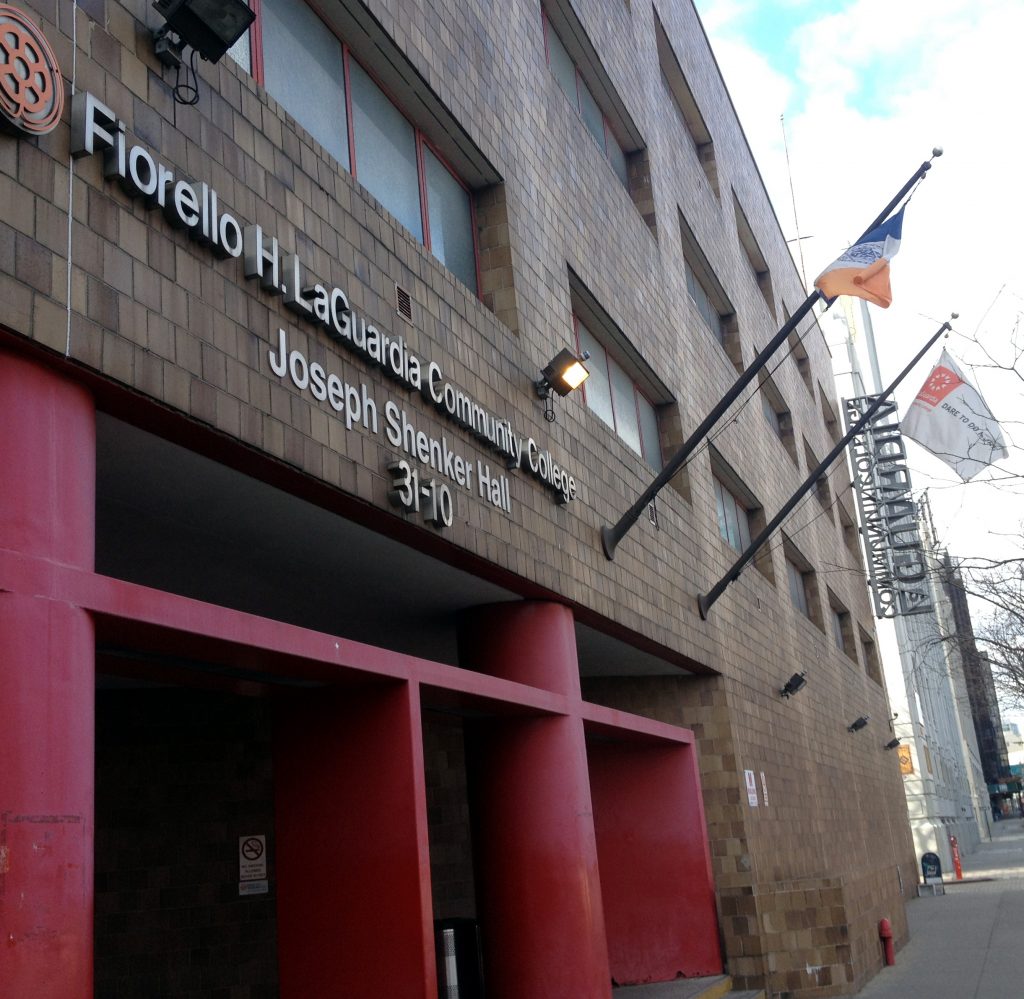By M. Marlay
Campus News
The Foundation for Individual Rights and Expression (FIRE) accused the Nassau Community College (NCC) of mishandling complaints of harassment and discrimination lodged against two students represented by FIRE. FIRE, founded in 1999, is a not-for-profit organization with the mission of defending and sustaining the individual rights of all Americans to freedom of speech with a particular focus on college campuses.
In a February 7, 2025, letter to Maria P. Conzatti, the NCC President, regarding the punishments of students Jordon Groom and Grant Peterson, FIRE alleged that NCC failed at, “Providing them copies of the complaints filed against them, a meaningful opportunity to respond to the allegations in the complaint, or a meaningful opportunity to appeal their discipline.” The school maintains that they ensure that all students have a right to due process.
Russel L. Penzer, the college’s counsel, responded in writing to FIRE stating, “Notwithstanding the conditional privacy waivers provided to you by Jordan Groom and Grant Peterson, the College does not discuss or disclose information regarding student matters. However, I can assure you that the College is committed to due process protections for all students and employees and can confirm that all due process safeguards have been and continue to be followed as set forth in the College’s policy on Anti-Discrimination and Complaint Procedures. To the extent any student or employee feels their rights have been violated, they have their remedies.”
While unable to give information regarding specific cases due to confidentiality, Penzer was able to discuss the school’s process to address accusations of discrimination and harassment, advising that following internal processes students may seek an appeal through external judicial processes if they believe their concerns have not been fairly addressed through campus-based processes.
FIRE alleges that allegations against the two students, Groom and Peterson, were handled differently by NCC. In its February 7 letter FIRE asserts that, “Groom… never received formal notification of the investigation against him. On December 10, during a meeting of the NCC Board of Trustees, Groom was asked to leave the room so the board could discuss an investigation that involved him. On December 19, Groom met with Wright [the Acting Associate Vice President, Equity, Inclusion, Affirmative Action, Title IX Coordinator], who told Groom of a complaint against him, but reassured Groom that the complaint had no merit.” Later on in FIRE’s letter it states that Groom was ultimately required to take a sensitivity training, no further actions were taken against him.
According to Groom, “I was told that if new information was found, the outcome could change, but I do not know what changed… To this day I’m not sure what discrimination I allegedly committed.”
In contrast, according to FIRE, “When the office sent Peterson the two complaints, they each merely named him as a respondent of discrimination and harassment allegations. The forms did nothing to inform Peterson of the nature of his allegedly discriminatory actions. During a December 2 meeting with Wright, Peterson finally had the opportunity to view the substance of the complaints, which contained more than 40 allegations against him.” Peterson was suspended from all club or organizational leadership roles for the remainder of the academic year as well as being required to take and complete a Diversity and Sensitivity Training.
Peterson expressed that he felt the accusations were retaliatory, as he stated he had submitted a complaint against members of the faculty prior, that as far as he knows were never investigated.
Groom also stated that he believes the complaints were, “Stemming from our advocacy of students.” Both Peterson and Groom held student leadership positions, Groom still holds his position as a member of the Board of Trustees.
Graham Piro, a FIRE Faculty Legal Defense Fund Fellow, expressed that FIRE asserts there was not sufficient opportunity for Peterson to respond to the over 40 allegations that were against him. Piro stated that, “It’s difficult to defend yourself when you haven’t been given a fair process.”
Although the full list of the allegations was not made available to this reporter, FIRE representative Piro mentioned that the complaints made against Peterson included that he, “used strong language — like telling another student, ‘You have no idea what you’re talking about, once again,’ or calling an administrator an ‘idiot.'” However further information regarding what he was specifically accused of in the over 40 allegations could not be obtained. No information could be obtained about the specific allegations lodged against Groom.
Even Groom stated that it was hard to recall all the allegations that were within the complaint, and that he was not able to create a written or digital record of them for himself. This is a common practice in schools in order to protect the privacy of all involved, even when there is specific information redacted in the documents concerns might remain especially if identification is still made possible from the non-redacted information.
The school’s Policy 2300 on Anti-Discrimination and Complaints Procedures defines the definition of discrimination as, “The unjust or prejudicial treatment of an individual or a group of people because of their race, color, age (40 or over), gender, sexual orientation, disability, national origin, religion, physical or mental disability, gender identity or expression, predisposing genetic characteristics, pregnancy status, marital or familial status, domestic violence victim status, military status, or because of the individual or group’s participation in the discrimination complaint process in the workplace or within the educational environment.”
The policy further recognizes three types of discrimination: 1. Discriminatory harassment, which is defined by the school as improper conduct toward a particular individual or groups of individuals on the basis of one or more characteristics listed in the previous quote, and is severe OR pervasive and is either meant to or results in creating an intimidating environment, 2. Disparate Treatment or Intentional discrimination, and 3. Adverse Impact/Disparate Impact or unintentional discrimination.
Their website also states, “The standard of proof in determining whether the complained of actions constitute prohibited discrimination or rise to the level of constituting a bias incident will be the ‘preponderance of the evidence’ standard. This means that the investigator must determine whether it is ‘more likely than not’ that the alleged discriminatory conduct or practice occurred. If the answer is 'yes,' then the complaint will be substantiated. In making this determination, the investigator will consider relevant laws and College policies, the documentation and information obtained from the complainant, respondent and third-party witnesses, and the severity and frequency of the alleged act(s).”
Piro stands by FIRE’s letter and believes that the students were not given a fair due process specifically naming, “Timely and adequate written notice of the charges against them; Adequate time to prepare a defense with access to relevant evidence; Impartial fact-finders; A meaningful hearing process; The right to present evidence to the fact-finder; The right to meaningful cross-examination of an accuser; Active participation of an advisor, ideally an attorney; and A meaningful right to appeal.”
According to the Policy 2300, “The Chief Diversity Officer shall receive information concerning factors which could influence an objective evaluation of the evidence. In the event that a conflict arises, the College will take necessary measures to ensure that the investigation is thorough and impartial. This may include reassignment of the investigation to another DIO or to an external agency.”
When asked if they planned on going to court, Piro stated, “We are acting as advocates for these students in the court of public opinion. We will continue to hold Nassau publicly accountable for its violations of these students' rights.”
However, according to Groom, “We have since then gotten legal counsel and are exploring our options with legal counsel.”
Peterson on the other hand said he is unsure where the process is going, but is appreciative of FIRE, “going to bat for students.”








Facebook Comments